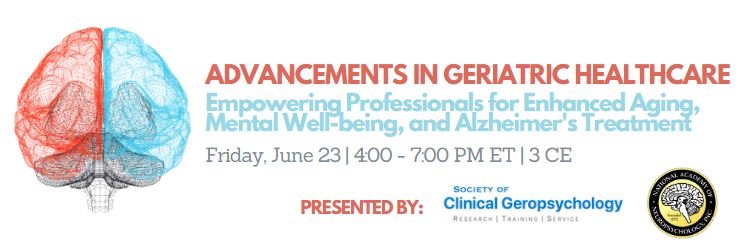
Join us for an event exploring aging, mental well-being, and Alzheimer's therapies. Experts will share strategies for successful aging, including nutrition, exercise, and stress reduction. Learn about under diagnosed psychiatric disorders in older adults and associated risk factors. Explore the new era of Alzheimer's treatments and healthcare professionals' evolving roles in patient access. Engage in discussions on biomarkers, genetic testing, and ethical considerations. Expand your expertise, refine your practice, and become empowered to make a positive impact in the lives of older adults, address mental health challenges, and navigate the dynamic landscape of Alzheimer's dementia therapies.
Learning Objectives
As a result of attending this workshop, participants will be able to:
1. Design practical strategies for improving age-related memory decline and coping with stress associated with modern life.
2. Explain why psychiatric disorders are underdiagnosed and undertreated in older adult populations.
3. Discuss the ethical and societal considerations of the newest Alzheimer's treatments.
Target Audience: Health practitioners are the primary audience, including clinical psychologists, neuropsychologists, geropsychologists and social workers.
Instructional Level: Intermediate
Price: $75 Member/Nonmember | $45 Trainee Member
Credit cannot be claimed for individual sessions - you must attend the full program to receive credit
All times listed are Eastern Time
Price: $75 Member| $95 Nonmember | $45 Trainee Member
Credit cannot be claimed for individual sessions - you must attend the full program to receive credit
All times listed are Eastern Time